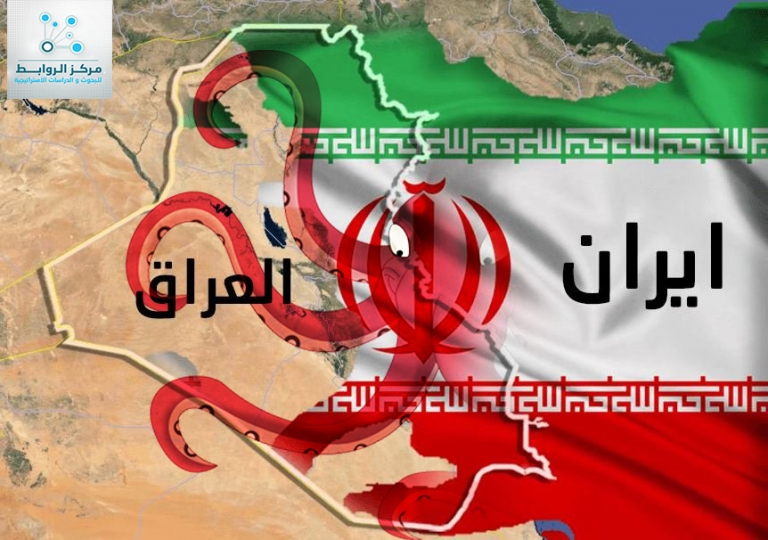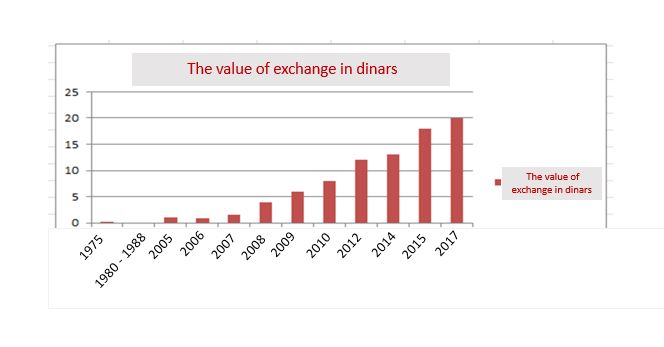Iraq is an important place in Iran’s strategic security planning, and we have seen this clearly when the severity of international sanctions and its impact on Iran have become more acute. Iraq has become a back door and a parallel route to securing Iran’s financial and technical needs, all thanks to the invasion and occupation of Iraq by the United States.
Iraq is the strategic axis of Iran for many reasons, the most important of which are the following
• Iran’s misperceptions that Iraq is part of Iran’s historical, geographic and sectarian expansion, and that it is an Iranian region and not an independent state. This is confirmed by the statement of the Iranian army chief of staff, Fayrouz Abadi that the Gulf and the region have always been the property of Iran and that Gulf oil is located in Persian regions.
• Iran is Iraq’s gateway to control and transit to the rest of the Arab world to spread the ideology of the Iranian revolution, and the lack of Iranian control over Iraq means isolating Iran from the Shiite presence in Syria and southern Lebanon.
• Iran believes that Iraq is a stumbling block to the expansion of Iranian influence to the Gulf where most of its population differs in terms of doctrine, and this is clear during the periods when the Iraqi state is strong economically and militarily.
Iran’s commercial diplomacy in Iraq managed to gain control over the Iraqi economy after 2003 through a number of agreements with Baghdad that are expected to have a positive impact on Iran’s economic activity in Iraq. The most important of these are an agreement whereby Baghdad reduced its customs tariff to Iranian goods ranging between 0 and 5%, and the elimination of Iranian export controls to facilitate trade movement.
If we compare the volume of bilateral trade between Iraq and Iran from the 1970s to 2017, there is a development in trade and economic relations worth to be noted. In 1975, the volume of trade exchange between Iraq and Iran amounted to about 200 million dollars and the trade between the two countries stopped between 1980 and 1988, except the border smuggling between the two parties, and then became according to the following table.
Iraq fluctuates from year to year between Iran’s first and second trading partner, continuing to be the first importer of its non-oil goods, importing 72 percent of all domestic Iranian goods.
The head of the Tehran Chamber of Commerce, Yahya al-Ishaq, said the trade volume between the two countries would reach between 20 and 25 billion dollars in the coming years. Of course, trade relations between Tehran and Baghdad will continue to be unequal and in favor of Tehran.
Iran’s exports to Iraq and its economic services are divided into three types: 1. Energy goods (natural gas and electricity), 2. Non-oil items (cars, food items, household items and handicrafts), 3. Technical and engineering services (energy, Health and transport).
Tehran, through these exports, accounts for 17.5 percent of the Iraqi market after it had acquired only 13 percent before the rise of the Islamic state, according to the statement of the Secretary-General of the Iranian-Iraqi Chamber of Commerce, Najabi Shirazi. Tehran is targeting, according to Shirazi, the acquisition of 25% of the Iraqi market in the coming years.
Despite this, Iranian exports to Iraq continue to face bureaucratic obstacles at the border crossings leading to Iraq because of the overlap of the work of a number of Iranian institutions. Therefore, pressure groups of Iranian traders and exporters seek to resolve these problems. The secretary of the Development Authority for Trade Relations between Iran and Iraq Rustom Qasimi called for the unification of the management systems at the border crossings, pointing out the presence of 11 institutions that hinder the expansion of trade and export because of the complexity of the work.
According to political and economic experts that the reality of the situation in Iraq today is an extension of Iranian influence which is so-called by soft power where the Iranian influence has dominated on the Iraqi economy, noting that in the field of local industries, several industries have disappeared , including the Iraqi brick industry known for decades as it no longer exists in favor of importing bricks from Iran, including simple industries such as refrigerants and other ones that have disappeared in Iraq in favor of imports from Iran.
The balance of trade is almost is in favor of Iran equal to 1-10% , which means dumping Iraq with Iranian goods, which are linked to the contracts signed by Iran and Baghdad, all of which are in favor of Iran. For example, Iraq allowed Iran only from among the world to open a 100% Iranian foreign ownership bank Other banks must be Iraqi capital or an Iraqi partner, and this bank is used as one pof the outlets to compensate Iran in the case of sanctions.
In other words, the Iraqi economy is gradually absorbed and contained from Iran, so that the Iraqi economic forces will find its economy and lives linked to Iranian capital.
In addition to this soft power that works to control Iraq, in 2008 international estimates indicated that there were two thousand Iranians came to the scientific Hawza (hawza ilmiyya) in Najaf and Karbala as students or clerics, at least one third of them are intelligence men who support the Iranian presence there, this is a fact that only those who rule Iraq are to blame.
The claim of concern for the Iraqi people is similar to that of the Americans who eventually destroyed Iraq. They also claimed that the American presence in it was a threat to Iran. Iran acted in defense of itself by making Iraq a swamp of Americans and to be a swamp, It increased the erosion of Iraq’s infrastructure by supporting the Violence in the country
When the United States said it wanted to get out of Iraq, the Iranians were ready to rebuild Iraq and secure security there,
the experts called for the establishment of good and healthy relations between Iraq and Iran and does not turn into Iranian revenge in a soft way to turn Iraq into an arena of influence and extension of Iran, and this is a political reality, as Iraqi traders in Iran go to free zones with Iran without a visa, and there are relations at the level of provinces Such as the neighboring provinces of Maysan and Basra, where the border is open for going and coming . The Iranians gained a 1.5 billion-dollar project and became a political paper by the Iranian contractor to recruit and operate the people.
Tehran’s economic actors appear not only to play a greater role in infrastructure projects, they also may want to engage in joint economic entities with Baghdad so that they can penetrate economic institutions more by establishing local pressure groups that direct the concerned decision-making centers in their favor . Iran seeks to acquire 5-10% of development projects in Iraq.
Economic unity
Rawabet Center for Research and Strategic Studies


